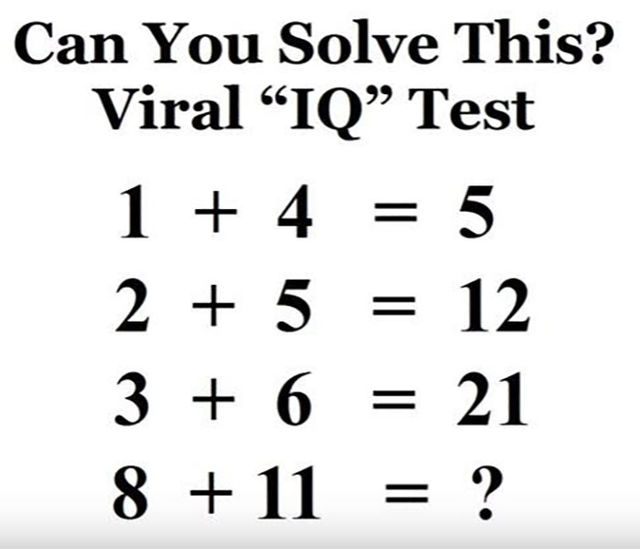 That's not what I meant
5/5 '18
That's not what I meant
5/5 '18
You can think about something that evokes no emotional response, if you want--but you don't do it, do you? Not unless you have to. "I don't care" is the quickest way to nip a conversation in the bud. And why is your job disappointing? Because you spend all of these precious hours doing something that you just don't care about.
Human beings care about stuff. It's where we start. We may later use our rational part to look more closely at something, but the caring comes first. By the time our analytical brain turns on, we're generally already emotionally invested in...whatever it is. We're well downstream from the our original point of departure, and we have little desire to backtrack--to go back upstream and start the trip again with both the gut and the rational mind on board. So we start reasoning, analyzing, discussing from just where we are.
The people whose boats are floating near us become our tribe. The ones floating way over there are not, and they include the evil, the misguided and the stupid--the fleet of deplorables. By the time we engage with others on a subject, we have pretty much figured out our position. Our logic is internally consistent and our answer the right one. That means we can spend our time passionately defending that answer and pretty much ignoring the babble of others...unless those others agree with us.
And if this Us and Them dichotomy is emotionally satisfying, then you can go for it. If you actually want the world to become a better place, though, this isn't going to help. To have a discussion that might actually lead to something, somebody (hopefully everybody) needs to return to at least a semi-open mind. They also need to agree on the meaning of the terms that they use and on what can they can take as common ground. There will be some common ground, although at the outset, nobody may know what it is.
Let me try to make my points by talking about something that most people don't--and shouldn't--care about.
There is an "IQ" math quiz going around on Facebook, which I reproduced below. Over 3000 people have "solved" it and then gone on to debate the answers. We have the "Answer is 96" team and the "Answer is 40" team, and so on. And each team is absolutely sure their answer is unassailable. They're passionate about it. You can figure out why--and I bet it isn't a love of math.
Looking over the posts, it seems that virtually everyone makes these two assumptions:
1. There is only one correct solution, and in it, all of the equations have to be true. If all of your equations are true, you have proved that your answer is the right one.
2. "+" isn't really "+" . On the other hand, all other symbols are being used in their normal way.
The first assumption is common enough in its form; it echoes "There is only one true God" among others, and it includes the always-popular confirmation bias: paying attention only to data that supports your conclusion. I'm letting that go today. I want to take the second assumption as a poster child--an emotionally neutral poster child--for the problem of and importance of terminology.
Assumption #2 is perplexing, in its way. Why would people "know" that all of the other symbols mean exactly what they've always meant, but that the odd one out is the plus sign? Why not assume that "=" means "less than or equal to", and give any value of 19 or more as the answer? It may be what is called a "Schelling point" in game theory. In a cooperative game, a Schelling point is a good one to choose simply because, for some reason, most people figure it would be chosen. So I'll accept the idea that the "+" is the odd one out as common ground.
Of course, the puzzle could have said, "? is a binary operation and 1 ? 4 = 5, 2 ? 5 = 12", and so on...and then asked how ? worked. But instead we have "+", which we now assume isn't really "+", but is pretty much like "+"--which should be good enough if you're not being a pedantic prig.
But it's not. Virtually everyone assumed that this new "+" was a binary operation (although they may not have ever heard that phrase), that it took the two given numbers and always returned a number as the answer. You know, just like the usual "+".
Except--and here's where the debates started--with regular addition, A + B and B + A are the same. With regular addition, you can figure out A + B for any two numbers. Do these properties have to hold for this new "+"? A + B uses arithmetical operators--just one, in fact. Does the new A + B have to do this? Because if not, A + B might mean "the entry in row A, column B of this here table". And if you're upset that you could fill that table in an infinite number of ways...well, sorry, but it's not hard to prove that you can come up with an infinite number of different arithmetical formulas that all "work" for the data given. As two examples, you can get A + B = A(B+1) or A + B = 1/4((A + B + 1)^2 - 16). The first of these has A + B different from B + A; the second has them being equal. Both of them agree on the answer to the puzzle...and on almost nothing else.
I kinda hope you skimmed that last paragraph. Who cares what the right answer is? My bet is, almost no one. But they care about their answer being right. And almost no one is interested in seeing if the other answers offered are right, too. And this is in a case where it's trivial to check to see if the other answers work!
And matters are only made worse because the problem used a "+" sign, a common and universally understood symbol, but deliberately used it in a way that refers to something that wasn't addition, but was "like it in important ways".
Trivia? Absolutely. But we see the same thing in discussions about meaningful and important things, and then we don't need to muddy the water by using terminology that means whatever we want it to mean at the moment, leaving it to others to sort out. This is especially true if you're trying to find common cause with the people in those boats on the other parts of the river. They're not all a fleet of deplorables, and we need to keep track of the differences.
If you don't mean "all Republicans" or "all men" or "all police officers" when you speak of Republicans or men or police officers, then please take a couple of syllables to say so. "Many Republicans", "too many men", "most police officers", or whatever. This does not turn the conversation away from your point. It keeps the conversation on your point by getting rid of an objection to something you didn't mean anyway. It also keeps you honest with yourself, forcing you to remember that the statements you are making are not universal truths, regardless of how important certain cases are, and how largely they loom in your thoughts and heart.
Words easily become confused with truths. If you get in the habit of making sweeping or hyperbolic statements because they sound strong and definite, will you be able to remember what you actually meant? Will others?



